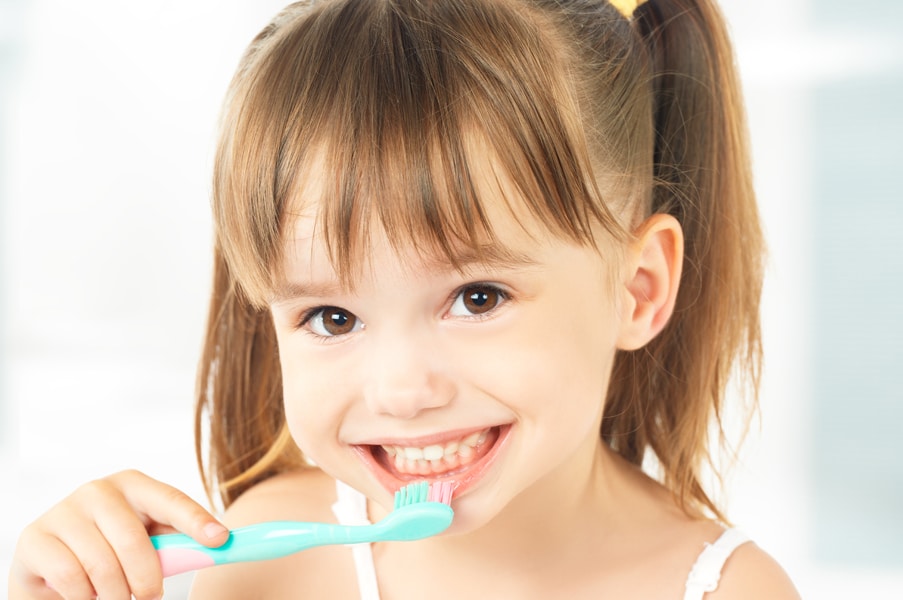
Caring for Your Baby’s Teeth: A Comprehensive Guide
The arrival of a new baby brings immense joy and responsibility. Among the many aspects of caring for your little one, maintaining their oral health is crucial. Baby teeth, also known as primary teeth, play a vital role in a child’s overall development and well-being. Here’s a comprehensive guide to help you ensure the optimal care of your baby’s teeth:
When Do Baby Teeth Erupt?
Baby teeth typically begin to erupt between 6 and 12 months of age. The lower front teeth (central incisors) usually appear first, followed by the upper front teeth (lateral incisors). By the age of 3, most children have a full set of 20 baby teeth.
Importance of Baby Teeth
Baby teeth serve several essential functions:
- Chewing and Speech: They enable babies to chew food and develop proper speech patterns.
- Space Maintenance: They hold space for permanent teeth to erupt correctly.
- Facial Development: They contribute to the proper development of the jaw and facial muscles.
- Oral Health: Healthy baby teeth prevent pain, infection, and other oral health problems.
Caring for Baby Teeth
Even before your baby’s first tooth erupts, you can start caring for their oral health:
- Wipe Gums: Use a clean, damp gauze or washcloth to gently wipe your baby’s gums after feedings. This removes bacteria and helps prevent gum irritation.
- Finger Brush: Once your baby’s first tooth appears, start using a soft, silicone finger brush to gently clean their teeth and gums.
- Toothbrush: When your baby is around 18 months old, introduce a soft-bristled toothbrush. Use a pea-sized amount of fluoride toothpaste and brush their teeth twice a day.
- Flossing: Flossing is not necessary for baby teeth, but you can start introducing it once your child has two teeth that touch.
- Avoid Sugary Drinks: Limit your baby’s exposure to sugary drinks such as juice and soda, as they can damage their teeth.
- Healthy Diet: Offer your baby a healthy diet rich in fruits, vegetables, and whole grains. Avoid sugary snacks and processed foods.
- Regular Dental Checkups: Schedule your baby’s first dental checkup around their first birthday. Regular checkups allow the dentist to monitor their oral health, detect any problems early on, and provide guidance on proper care.
Common Baby Teeth Problems
- Tooth Decay: Baby teeth are more susceptible to decay than permanent teeth due to their thinner enamel.
- Gum Disease: Poor oral hygiene can lead to gum disease, which can cause pain, swelling, and bleeding.
- Trauma: Baby teeth can be damaged by falls or other accidents.
- Teething: Teething can cause discomfort and irritability.
Teething Relief
To alleviate teething discomfort, try the following:
- Teething Rings: Offer your baby a chilled teething ring to chew on.
- Cold Washcloth: A cold, wet washcloth can soothe sore gums.
- Massage: Gently massage your baby’s gums with a clean finger.
- Over-the-Counter Pain Relievers: If your baby is in severe pain, consult with your pediatrician about over-the-counter pain relievers.
When to Seek Professional Help
If you notice any of the following signs, seek professional dental care immediately:
- Persistent pain or swelling
- Bleeding or discharge from the gums
- Broken or chipped teeth
- Difficulty eating or drinking
- Fever or irritability
Conclusion
Caring for your baby’s teeth is essential for their overall health and well-being. By following these guidelines, you can help ensure that your little one has a healthy and beautiful smile for years to come. Remember, good oral hygiene habits start early, so establish a consistent routine and make dental checkups a priority. With proper care, your baby’s teeth will support their growth, development, and overall happiness.
